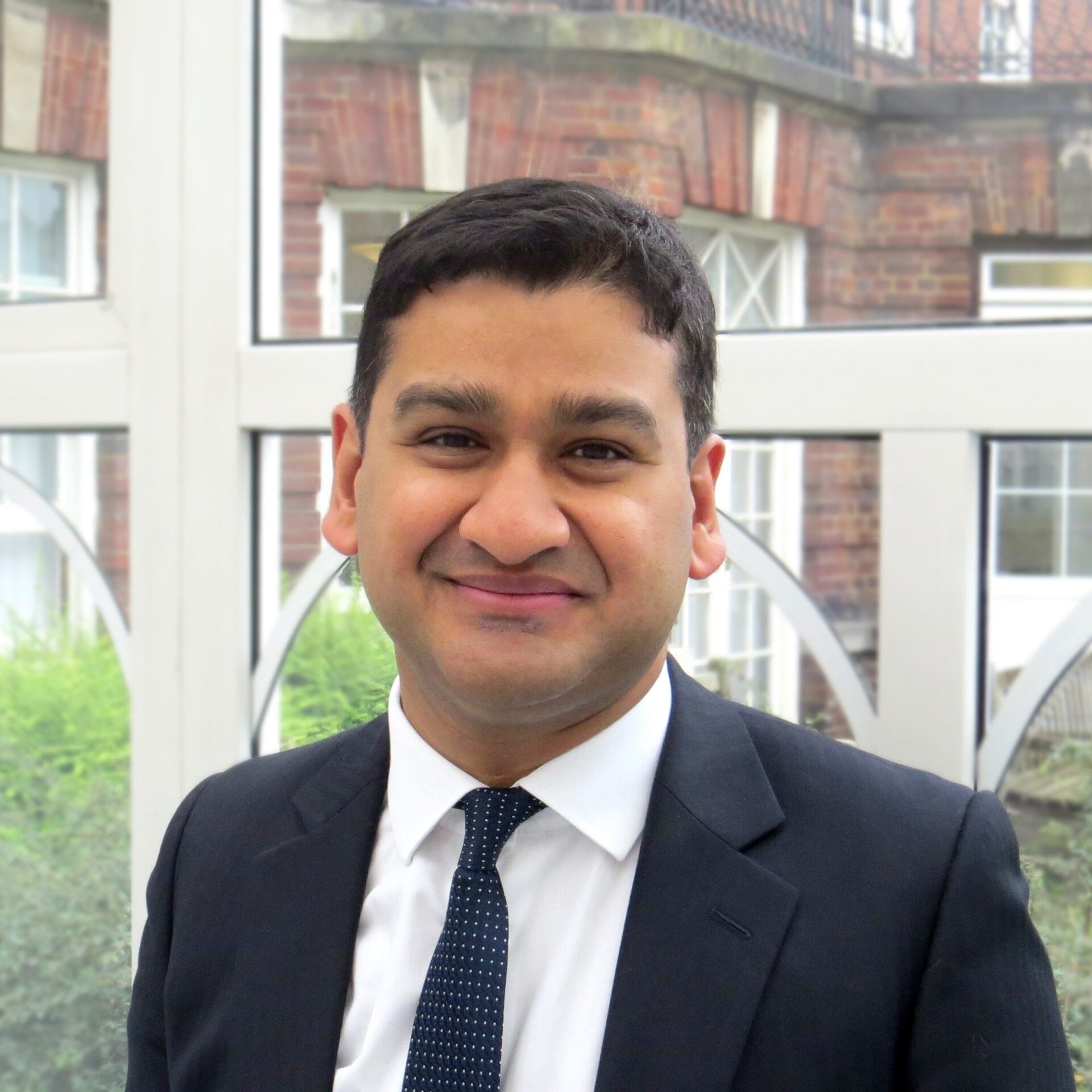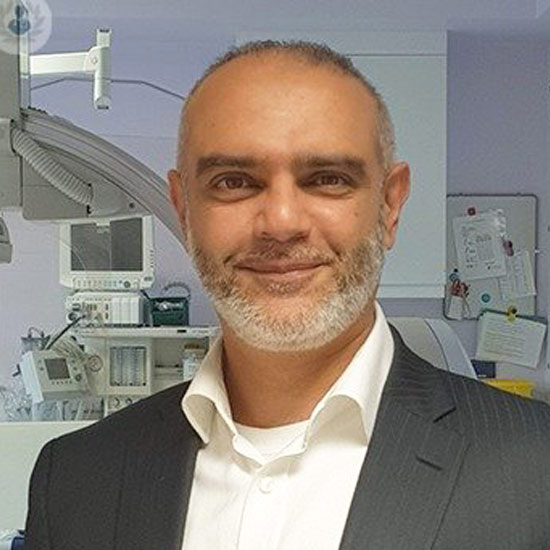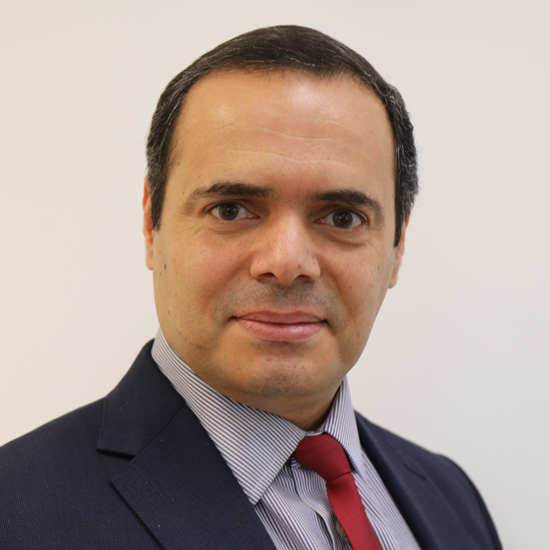London Medical Cardiology
Coronary heart disease
London Medical’s Cardiology Clinic provides the most up-to-date investigative cardiac procedures for patients with heart problems – and some of the UK’s most renowned cardiologists hold clinics here for all aspects of heart disease.
Expert treatment from leading cardiology consultants to keep your heart healthy
Coronary heart disease is a serious health problem and one of the UK’s biggest killers. In coronary heart disease or CHD, the vessels that supply essential blood and oxygen to the heart become progressively narrowed by fatty deposits, known as plaques. Coronary heart disease causes chest pain and can lead to heart attacks that can permanently damage the heart and put your life at risk.
London Medical offers cutting-edge cardiac care from consultants who are world-leaders in the prevention and treatment of coronary heart disease. Whether you are concerned about your symptoms or have a family history of heart attack, they can assess your current heart health and determine your personal risk for future cardiac disease.
The specialists at London Medical will work with you to protect your heart and safeguard your health. Regular health checks, control of chronic conditions like diabetes and hypertension and lifestyle changes can improve your heart health and prevent a heart attack.
What is coronary heart disease?
Coronary heart disease is a condition in which the vessels that supply blood to the heart become constricted by fatty deposits. These fatty plaques build up on the walls of the arteries making them progressively narrower and reducing the flow of essential blood and oxygen to the heart muscles.
The heart muscles need oxygen to pump effectively. When the blood flow is restricted, the heart muscles can cramp, causing chest pain or angina. This can be triggered by exertion or exercise, but if the disease progresses chest pain can also come on at rest.
If some of the fatty plaque or atheroma breaks off, a blood clot can form which can suddenly block the coronary artery, causing a heart attack. The supply of blood and oxygen is interrupted, causing severe pain. Without emergency specialist treatment to dissolve the clot, the heart muscle can be permanently damaged.
Who is at risk of coronary artery disease?
Anyone can get heart disease, however, some people are more at risk. Your age, your lifestyle and your general health can all affect your vulnerability to coronary artery disease. Risk factors include:
- Smoking
- Obesity
- Increasing age
- Family history of heart attacks or angina particularly in people less than 60 years of age
- Being male, or a woman after the menopause
- High blood pressure
- Diabetes
- Raised levels of ‘bad’ cholesterol
London Medical offers a comprehensive analysis of your personal risk of developing heart disease in the future, so that a treatment programme can be created to reduce your risk, treat any existing disease and maintain the health of your heart.
What are the symptoms of coronary heart disease?
Angina
Angina causes chest pain that feels dull or heavy, or like a tightness across the chest. The pain may be triggered by stress or exercise and may spread into your arm, neck, jaw or back. The pain of angina should stop after resting for a few minutes. If angina starts to come on at rest, it may be more serious, requiring urgent treatment.
Heart attack
A heart attack cannot wait for a routine appointment and investigations. You should act fast and call 999 if you develop sudden pain in your chest that:
- Feels tight, heavy or crushing
- Continues for more than 15 minutes
- Spreads into the arms, neck, jaw or through to the back
- Is associated with breathlessness, clamminess, sweating or your heart racing
- Makes you feel unwell, weak or nauseous
Prompt treatment can prevent heart damage and could save your life.
Heart failure
In heart failure the heart is unable to pump effectively, causing fluid to build up in the lungs and body tissues. Heart failure causes shortness of breath that is worse on lying flat, swelling in the feet, ankles or lower back and can make you feel tired, weak and unwell.
Investigation of coronary heart disease at London Medical
London Medical’s state-of-the-art cardiology clinic offers the latest investigative procedures to identify coronary heart disease. Some of the UK’s most renowned cardiologists provide expert assessment and treatment, supported by a team of dedicated cardiac nurses, ultrasound specialists, and physiology technicians. Depending on your symptoms, your examination and your health, investigations could include:
- ECG recording
- Treadmill exercise stress tests
- Echocardiography and stress echo tests
- Coronary angiography to highlight blockages in the blood supply to the heart
- Ambulatory blood pressure monitoring
- Ambulatory ECG recorders
Assessment of your risk of developing heart disease
London Medical offers an in-depth assessment of your individual risk of developing heart disease. A range of non-invasive tests are available from London Medical’s laboratory and the state-of-the-art imaging suite. The results are used to identify risk factors and evaluate your current heart health. Tests include:
- Screening for diabetes
- BP monitoring
- Comprehensive cholesterol and lipid profile: London Medical provides cutting-edge cholesterol and lipid testing to help assess your risk of cardiac disease. In addition to traditional cholesterol testing, London Medial exclusively offers LDL particle number analysis, one of the most powerful tools for predicting heart attack risk.
- Carotid artery ultrasound: Scanning the carotid artery in the neck is an effective, low-radiation way of measuring the lining thickness and the size of any fatty plaques. A coronary artery calcium score is also assessed and these results are used in conjunction with the findings from the cholesterol blood tests to provide an overall assessment of personal risk.
Treatment of coronary artery disease
Treatment of coronary artery disease at London Medical includes the careful management of any chronic conditions like hypertension and diabetes, treatment to improve the blood supply to the heart and support to make lifestyle changes. Your consultant will customise a treatment plan for your needs. This could include:
Lifestyle changes
Stopping smoking, exercising regularly, eating a balanced diet and maintaining a healthy BMI can help protect your heart. London Medical offers expert support from many different specialties, all under one roof. Whether you need a personalised weight management programme, nutritional advice or support with giving up smoking, London Medical can help.
Medication
Your specialist may prescribe several different types of medication to control any pain, support the work of your heart and optimise your health. These could include:
- Nitrates to widen the blood vessels and ease chest pain.
- Statins or ground-breaking new PCSK9 inhibitor medications to reduce levels of ‘bad’ cholesterol.
- Antiplatelet drugs to thin the blood and reduce the risk of clot formation and heart attack.
- Angiotensin-converting enzyme (ACE) inhibitors or angiotensin II receptor blockers to open up the blood vessels and improve the flow of blood, as well as reducing blood pressure.
- Calcium channel blockers to relax the muscles in the artery walls and reduce blood pressure.
- Beta blockers to improve blood flow and slow the heart rate.
- Diuretics or water tablets to decrease fluid congestion and pulmonary oedema.
Depending on your symptoms, your health and the results of your investigations, your consultant may also suggest an intervention or surgery treat your coronary artery disease:
Coronary angioplasty: Angioplasty is a minimally invasive procedure to relieve blockages in the coronary arteries. It can be performed as an emergency measure to relieve a sudden blockage, or as a planned procedure. Through a blood vessel in the groin, a device is inserted into the blocked coronary vessel. The specialist physician inflates a balloon to open up the narrowed area of artery then precisely places a stent in the artery to keep it open and maintain the blood flow. London Medical also offers innovative new stents that slowly release medication to stop the artery narrowing.
Coronary artery bypass graft (CABG): Bypass surgery can help when the arteries are significantly narrowed. The specialist cardiothoracic surgeon grafts a new blood vessel to supply blood to the heart muscle, bypassing the blocked artery.
Frequently Asked Questions
Our Consultants
Dr George Amin-Youssef
Consultant cardiologist who deals with adults and specialises in heart failure, including advanced heart failure, working in one of the largest heart failure units in the UK.
Professor Carlo Di Mario
Specialist in Interventional cardiology – the use of catheters and other devices to restore blood flow to the heart without major surgery.
Dr Claire Chalmers-Watson
Dr Chalmers-Watson is an experienced General Practitioner with over two decades of experience in primary care and a profound expertise in managing a broad spectrum of health conditions.
Dr Shouvik Haldar
Consultant Cardiologist and Electrophysiologist at the Royal Brompton and Harefield Hospitals with a specialist interest in the management of patients with abnormal heart rhythms.
Dr Riyaz Kaba
Consultant cardiologist and electrophysiologist, specialising in arrhythmias, ablations, and pacemakers.
Professor Thomas F. Lüscher
Consultant in cardiology, interested in interventional cardiology, rhythmology, echocardiography, heart failure, acute cardiac care, and sports cardiology.
Dr Khaled Mallek
An esteemed consultant interventional and general cardiologist, specialising in complex coronary interventions and chronic total occlusions.
Professor Kausik Ray
Consultant preventative cardiologist, specialising in diabetes, lipids, glucose, hypertension and cardiometabolic traits.
Dr Neil Srinivasan
Consultant cardiologist, specialising in the management of heart rhythm problems.
Dr Aphrodite Tzifa
A fully trained Paediatric and Adult Congenital Heart Disease Cardiologist with more than 23 years’ experience in the field.
Our Cardiology specialties
We offer care across a broad range of cardiology specialties. We have some of the top specialists in every aspect of cardiac care. Our entire team is dedicated to working together to consider the results of your investigations, your health and your lifestyle before tailoring a treatment plan to your individual needs.
Our Locations
London Medical is located in the Harley Street medical area. Together with top experts across a range of multi-disciplinary fields, we offer the finest facilities for your care, all under one roof.
Monday to Friday 8.30am to 8pm
Monday to Friday 8.30am to 8pm
Monday to Friday 8.30am to 8pm
Speak to a member of our team
Contact the appointments team
If you have any questions or want to book an appointment, please speak to our team on +44 (0)800 0483 330.
Or, make an enquiry online using this form and one of our team will be in touch. Please note, all the information collected is required as part of our registration process. By using this form you agree with the storage and handling of your data by our team. You don't need a referral from your GP to make an appointment with us.
Heart Health News
Find out the latest news, thinking and insights from our experts. Our Heart Health News is your go-to source of trusted advice and knowledge on all matters of the heart.













